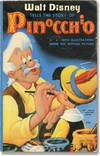
American Fugitive in Europe. Sketches...
by BROWN William Wells
- Used
- Hardcover
- first
- Condition
- See description
- Seller
-
Philadelphia, Pennsylvania, United States
Payment Methods Accepted
About This Item
1855. First Edition . BROWN, W[illia]m Wells. The American Fugitive in Europe. Sketches of Places and People Abroad. With a Memoir of the Author. Boston / Cleveland / New York: John P. Jewett / Jewett, Proctor & Worthington / Sheldon, Lamport & Blakeman, 1855. Octavo, original blind-stamped gilt-lettered brown cloth. $5800.First edition of Brown's substantially revised and expanded Three Years in Europe (1853), newly titled as American Fugitive in Europe with 12 new chapters, issued within months of his return from years of exile, determined to continue his work as a soldier ""against the prison-house of slavery,"" a core work in Brown’s ""substantial legacy,"" with striking engraved frontispiece portrait, especially elusive in original cloth.Born into slavery, William Wells Brown ""remains an enduring figure in African American history and literature for his writing, his activism and his remarkable story of survival and triumph over slavery, illiteracy and systematic racism."" He attempted his first escape in 1833, only to be trapped by slave catchers. When he fled again in 1834, he added ""Wells Brown"" to his name in honor of a Quaker who aided his escape. When Brown met Frederick Douglass in 1843, he joined the abolitionist cause as a speaker, and soon afterward Brown's autobiographical Narrative was published. When one of his slave owners, Enoch Price, offered to buy his freedom, Brown publicized his refusal, saying ""'God made me as free as he did Enoch. Price'… this refusal necessitated his removal to Europe, which he arranged in 1849 as a delegate to the International Peace Congress in Paris."" Confronted by the Fugitive Slave Act, Brown remained in Europe until 1854 when he ""was persuaded to let friends buy his freedom so he could return to the United States and continue his work in the abolition movement"" (Gates, ed. African American Lives, 119-20). Brown returned ""a changed man to a changed nation… the legislative war over slavery had so intensified that the threat of violence was in the air."" His years of exile had produced Three Years in Europe (1852), ""one of his most significant"" works, which he substantially expanded for this first edition of his pioneering American Fugitive in Europe that features a ""dozen new chapters"" (Greenspan, William Wells Brown, 313, 327). It further asserts Brown's resolve to be, in his words, a soldier ""against the prison-house of slavery… the most cruel system of oppression that ever blackened the character or hardened the heart of man."" Here Brown's wide-ranging knowledge counters ""racist arguments of the time while also engaging his readers in extended antislavery commentary."" He is also famed as the first African American novelist for Clotel (1853), and renowned as a playwright and historian whose works negotiated ""a shift from 'fugitive slave' to 'author"" (Ernest, ed. My Southern Home, xix-xxi). Brown's ""publications, together with his reform efforts, are a substantial legacy"" (ANB). First edition: with the striking frontispiece portrait ""drawn & engraved by R. Woodman,"" featuring Brown's facsimile signature. With his addition of ""Opinions of the British Press"" at rear. Sabin 8586. Blockson 1973. Contemporary owner inscription of ""Holland and Hooper"" in Walpole, New Hampshire, dated ""Nov. 1855""—the year of publication.Interior generally fresh with trace of soiling, light foxing mainly to early leaves, trace of edge-wear, scant bit of toning to rear board of bright gilt-stamped unrestored cloth. A very scarce near-fine copy.
Reviews
(Log in or Create an Account first!)
Details
- Bookseller
- Bauman Rare Books
(US)
- Bookseller's Inventory #
- 119840
- Title
- American Fugitive in Europe. Sketches...
- Author
- BROWN William Wells
- Book Condition
- Used
- Quantity Available
- 1
- Edition
- First Edition
- Binding
- Hardcover
- Date Published
- 1855
Terms of Sale
Bauman Rare Books
All items are subject to prior sale. All items are guaranteed as described. Refunds are limited to original purchase price. Items may be returned within 30 days of receipt if unsatisfactory for any reason (please notify us prior to returning, preferably by phone.)
About the Seller
Bauman Rare Books
Biblio member since 2009
Philadelphia, Pennsylvania
About Bauman Rare Books
In business since 1973, Bauman Rare Books now has locations in New York, Philadelphia and Las Vegas.
Glossary
Some terminology that may be used in this description includes:
- Cloth
- "Cloth-bound" generally refers to a hardcover book with cloth covering the outside of the book covers. The cloth is stretched...
- Octavo
- Another of the terms referring to page or book size, octavo refers to a standard printer's sheet folded four times, producing...
- First Edition
- In book collecting, the first edition is the earliest published form of a book. A book may have more than one first edition in...
- Facsimile
- An exact copy of an original work. In books, it refers to a copy or reproduction, as accurate as possible, of an original...
- Leaves
- Very generally, "leaves" refers to the pages of a book, as in the common phrase, "loose-leaf pages." A leaf is a single sheet...
- New
- A new book is a book previously not circulated to a buyer. Although a new book is typically free of any faults or defects, "new"...

